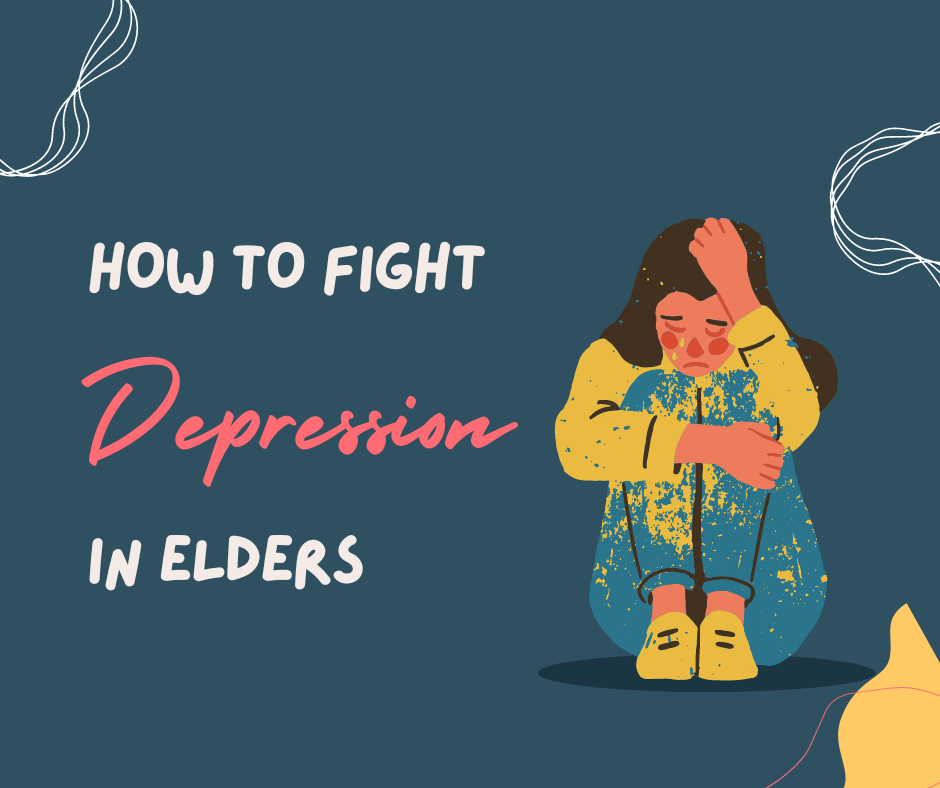Depression in Older People – Strategies to Combat Depression
Depression is a mental health condition that can be profoundly overwhelming, impacting countless individuals globally, including older adults. This mental disorder can disturb even the simplest daily tasks, draining one’s energy and inducing a sense of helplessness.
However, to every dark tunnel, there is always a way out. By taking a step at a time and receiving appropriate treatments, individuals can combat depression and reclaim agency over their lives.
Here are some strategies that can help you and your loved elder manage and cope through depression.
1. Know the Signs and Symptoms
The first step in supporting individuals is to understand the signs of depression. Common symptoms include constant feelings of sadness and hopelessness, as well as changes in behavioural patterns like eating, sleep patterns, and lack of outdoor activity. Other indicators also include lack of focus and loss of interest in activities they once enjoyed.
It is important to note that depression varies in its severity and symptoms change over time. As for this reason, not everyone experiences the same set of symptoms or shows similar signs. So it is necessary to monitor your or your loved one’s signs, so that appropriate support can take place.
2. Seek Professional Guidance
While family and friends can help by offering emotional support, they cannot treat a person’s depression. Therefore, seeking professionals like psychiatrists, psychologists, and therapists is a necessary step toward treating depression. These professionals can monitor the individual’s condition and offer a personalised plan of action, therapy and necessary medication.
Making up your mind to seek help is a courageous act. However, a person with depression may lack energy to put themselves through the situation. So, on top of emotional support, encourage the individual to seek medical treatment and help set up appointments. You can also accompany the person to the therapist’s or doctor’s office to show that you care.
3. Build a Support System
Having a support system is invaluable for those battling depression. Along with medical and support community networks, being surrounded with family, friends and support groups can offer comfort and a sense of assurance for the individual. Knowing that there are people who care, the person can alleviate feelings of burden and isolation caused by depression.
So if you are suffering from depression, communicate your needs and emotions honestly to those whom you trust. As for family and friends, listen and show empathy to the individual. Sometimes, simply sitting down in silence can also make a world of difference.
4. Educate Yourself
Knowing your condition can be empowering, as this can reduce the fear and stigma associated with depression. Also, it is an opportunity to have an insight into being aware of your own mind and body.
You can obtain useful information from books, podcasts, and workshops. Taking notes and discussing what you have learnt can be an effective way to stay on top of your condition. The more you know, the better prepared you’ll be in fighting back depression.
5. Set Coping Strategies
There are numerous useful strategies proven to work and ease depression. Practising mindfulness, engaging in physical activities, meditation and writing diaries are some of many effective coping techniques that lead individuals to better peace of mind.
Everyone is different and therefore strategies that work differ from person to person. Experiment with different tactics to find what works the best for you. Then, over time, you will find yourself having the right tactics to use when you are feeling low.
6. Practise Self-Care
It is easy to miss the importance of self-care when depression takes hold. However, it is crucial that you prioritise taking care of yourself to get through this tough time.
So create and start practising a self-care routine such as maintaining regular sleep, a balanced diet, exercise and relaxation. This way, you can focus on your well-being and nourish your mind, body and soul, making it easier to manage depression.
7. Set Realistic Goals
For people with depression, having high goals can feel overwhelming as even completing simple tasks can be challenging. Therefore, starting small and setting realistic goals, both short-term and long-term, can help regain a sense of control and accomplishment. Each step taken can be celebrated, which can initiate positive changes in their healing journey.
8. Don’t be let down
While treating depression, there can be moments of ups and downs. Recovery is not linear and setbacks or normal. So be kind and patient with yourself, acknowledge your effort in trying, and remind yourself of all the progress you have made.
Each person is different, and therefore, their battle with depression is unique. Try the strategies suggested above and keep seeking help. Don’t be afraid to seek professional help as treatment for depression is usually covered by private insurance and Medicare. There are also many free support services readily available for you:
- Suicide Call Back Service 1300 659 467
- Lifeline 13 11 14.
Living Waters Aged Care is here to help as well. Contact us if you are seeking help for the well-being of your elder.

